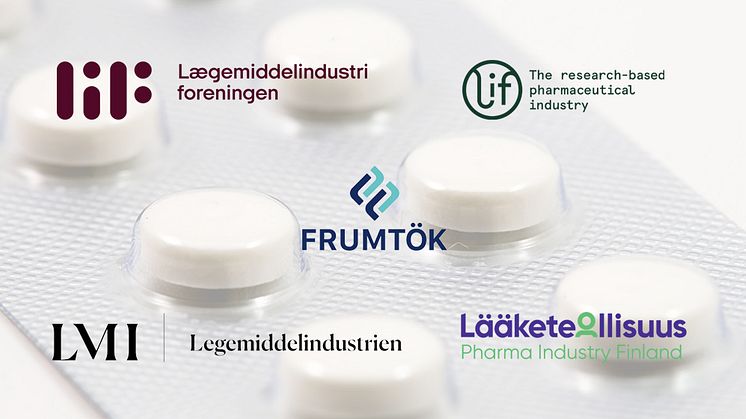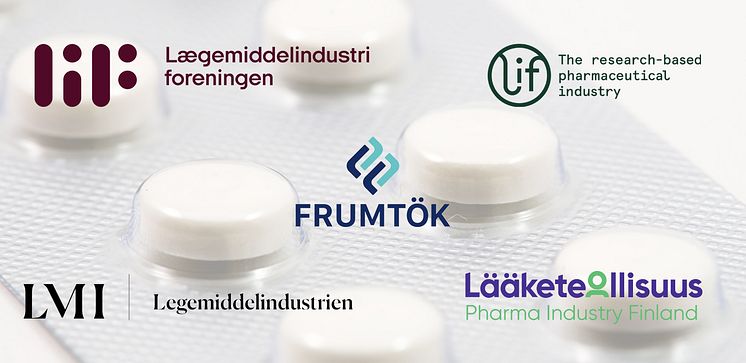
Pressmeddelande -
Joint Statement from the Nordic Pharmaceutical Industry on the implementation of EU HTA Regulation
The upcoming meeting in Stockholm From Theory to Practice: Implementing the EU Health Technology Assessment Regulation is an important event in the Nordics leading up to the implementation in 2025.
The Pharmaceutical Industry Associations in the Nordics welcome the efforts organized by the European Commission’s Directorate General for Health and Food Safety and the Heads of HTA Agencies Group (HAG), together with national HTA agencies.
In December 2021 the EU HTA Regulation was published in the EU Official Journal, and it formally entered into force on January 11th, 2022. The application of the regulation will start on the 12th of January 2025 with a gradual uptake of new medicines: first apply for products within oncology and ATMPs, for orphan medical products in 2028 and subsequently to all other centrally approved medicines in 2030.
One of the underlying aims of the EU HTA Regulation is to allow for faster and more uniform access to medicines across the EU.[1]It is expected that by setting out a predictable and efficient system for joint clinical assessments (JCA), joint scientific consultations (JSC) and the identification of emerging health technologies, there will be a reduction of administrative burden and avoidance of duplication of processes both at member state level and from the industry. [2]
To ensure timely patient access to new innovative treatments, it is essential for both the national competent agencies and the industry to make adjustments on various levels in line with the EU HTA Regulation implementation. With 2025 quickly approaching, adequate preparation is crucial to guarantee that all required modifications are made promptly, enabling everyone to be fully prepared on time.
The innovative pharmaceutical industry in the Nordics view the implementation of the EU HTA Regulation as an opportunity to collaborate with the national competent authorities to ensure faster access for patients to effective treatments based on the goal to avoid duplication of work and any delays.
In order to ensure successful implementation and to achieve the overarching goals of the EU HTA Regulation we, the pharmaceutical industry in the Nordics, have clear expectations to the EU HTA processes and the national HTA agencies involved, to secure a lean process that improves time to patient access to innovation across Nordics and Europe. We advocate for the following to be considered prior to the implementation:
- Meaningful involvement of Health Technology Developer (HTD): As key contributors, HTDs must be recognised as a stakeholder to the EU and member states (MS) to enable a successful implementation of the EU HTA Regulation. We expect appropriate, constructive and meaningful involvement of the HTD through the entire EU HTA process (JSC, Scoping – including possibility to give input to the PICO and JCA) and in the development of the local HTA systems.
- Joint EU PICO: We expect that the EU HTA development of an EU PICO focuses on that which is common to member states.
- Timelines: Strong consideration of feasibility of completing the HTA assessments within the set timelines. The EU JCA process must be efficient and workable for both HTDs and assessors within limited timelines.
- High-quality deliverables enabled by sufficient capacity and expertise at EU level:There must be sufficient resources, capacity and expertise at EU level available for timely and high-quality JSCs and JCAs.
- State-of-art assessment methods, that is able to reflect the clinical and regulatory context (including acceptance of use of surrogate endpoints, indirect treatment comparisons, and the use of Real-World Evidence). Flexibility in methods and data to best suit the intervention/therapy area in question, especially with regards to orphan products and ATMP.
The industry welcomes the efforts put forward by all stakeholders in the implementation of the HTA Regulation, but there are still many unanswered questions regarding methodology development and process. We therefore call for a sense of urgency amongst the national HTA agencies and HTA decision makers in the Nordics to finalise the methodology and ensure additional capacity for joint scientific consultations. As industry, we expect that the Nordic agencies are fully ready to implement the regulation in 2025 without delay to patient access. This involves that changes to the national HTA agencies operating models and processes should be in place by early 2024, to ensure that all stakeholders have a clear and predictable framework to plan and file their HTA submissions.
The innovative pharmaceutical industry will engage with expertise and resources to secure readiness on our side by 2025, to provide timely and high-quality submissions of HTAs. Consequently, we call for a constructive dialogue with the national authorities during the implementation process to ensure that patients have faster access to new innovations.
[1] https://health.ec.europa.eu/health-technology-assessment/regulation-health-technology-assessment_en
[2] https://www.efpia.eu/news-events/the-efpia-view/statements-press-releases/joint-statement-pharmaceutical-industry-concerns-over-the-implementation-of-the-eu-hta-regulation/https://www.efpia.eu/news-events/the-efpia-view/statements-press-releases/joint-statement-pharmaceutical-industry-concerns-over-the-implementation-of-the-eu-hta-regulation/#_ftn1
Relaterade länkar
Ämnen
Kategorier
Lif är branschorganisationen för de forskande läkemedelsföretagen i Sverige. Vi arbetar för en högkvalitativ vård och tillgången till nya behandlingar genom att stärka den svenska Life Science-sektorn i samverkan med vårdens aktörer, politiker, tjänstemän och patientföreträdare. Lif har närmare 100 företag som medlemmar.



